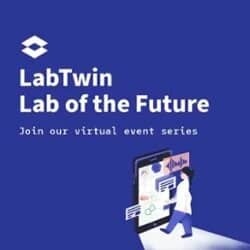Gloria is currently completing a PhD in immunology at the Center for Regenerative Therapies TU Dresden. She studies single immune cells using complex protocols such as FACS and single cell RNA-seq. We sat down with Gloria to hear how LabTwin helps her capture data without interrupting experiments.
Which digital tools do you currently use in your work?
I currently use FlowJo software to analyze FACS (fluorescence-activated cell sorting) data, R programming language in combination with Seurat and scRepertoire packages to analyze single-cell gene expression and immune repertoire. My lab is involved in many clinical trials, for which we use a custom-made LIMS to store and track samples.
How do you currently manage your data?
I use Excel to track my samples, but I would be keen on using something more advanced that can store and handle metadata.
What do you think research labs will look like in 5 years time?
They will embrace digitalization and will transition from written lab books to a digital interface. I imagine the future of research labs to be more automated, flexible and reproducible, especially in the terms of data management.
Why did you decide to join LabTwin’s ambassador program, Twenty Nine?
I joined the Twenty Nine program because I fully support LabTwin’s mission to build tools for the Lab of the Future. I realized that I spend a lot of time entering data into spreadsheets, with the risk of forgetting small details, and afterwards trying to identify where deviations come from. In current times, where data reproducibility is an ever-growing issue, a big emphasis should be put on accurate and clear data collection and annotation, and on removing as much unnecessary burden as possible from scientists.
What do you like most about LabTwin's voice-activated digital lab assistant?
I like that LabTwin is a hands-free tool that records everything I say in real time, so I don’t lose track of my thoughts, research or scientific papers (which is likely to happen after a 10-hour experiment). I also like that I can use LabTwin’s digital lab assistant to generate reports attached to protocols and save them digitally, so anyone in our lab can see exactly how an experiment was done.
What benefits could LabTwin’s digital lab assistant provide researchers in your team or your organization?
Because we use a lot of standard operating protocols (SOPs), LabTwin would greatly reduce the amount of paperwork. It would also help with digital protocol collection, so if another person is scheduled to repeat an experiment, that person can easily find exactly how it was done. Because we analyze many samples, LabTwin could help us to easily connect the outliers with a protocol and any relevant notes, so we could identify potential reasons for the outliers, such as a deviation from the protocol.
What are your thoughts on LabTwin's impact on research reproducibility and quality control?
Since experiments are becoming more complex, multiparametric, and hard to track—especially when scientists are working in the hood or in the dark—LabTwin could make a big difference when documenting the different variables that led to certain experimental results. LabTwin’s solution addresses the issue of lost or forgotten research details by allowing users to record notes in real time and store them digitally, hence enabling backtracking and potentially identifying experimental caveats.
In your opinion, how will an AI and voice-powered product like LabTwin shape the Lab of the Future?
I believe LabTwin will shape the Lab of the Future in many ways, and to name a few:
> by automating tedious tasks usually done manually by scientists, such as data storage and lab book management;
> by allowing scientists to track their experiments in real time and therefore ensure higher reproducibility and better quality control;
> by allowing scientists to collaborate on experiments and reduce the amount of unnecessary repetition of experiments – especially useful in big labs where people might not be aware of who is doing what











